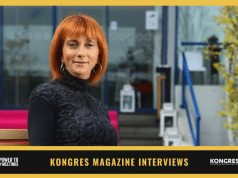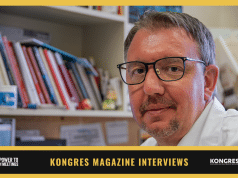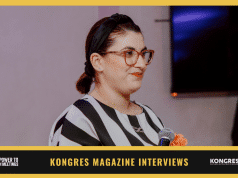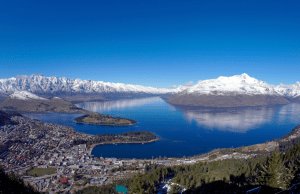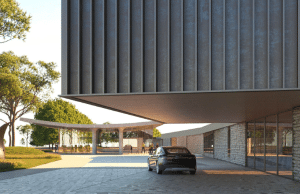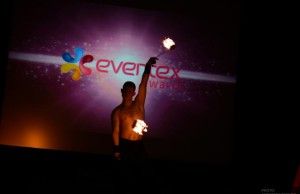How would you evaluate the start of European Capital of Culture (ECC)? What kind of challenges have you faced?
Suzana Žilič Fišer (SZF), Ph.D.: “I would say that the start of ECC has been very successful. Through the massive turnout at the opening events, citizens of Maribor and other partner towns have shown that they care about culture and that they also see in it possibilities for the future. Every day big and small stories of the capital have started to weave a mosaic of the whole year.
An important and telling piece of information is the fact that the TIC (Tourist Information Centre) Maribor has seen some 40% increase in visits and demand for cultural events in the realm of ECC. Visits to information points ‘Maribor 2012’ that were opened last December, both in Maribor and in Ljubljana, was also substantially increased. In January information points were visited by more than 2,200 people, and in the opening weekend alone we have seen over 700 visitors.
Some 75% of the visitors are Slovenians, they have shown the biggest interest in buying souvenirs and season tickets for Terminal 12 and tickets for other events within the ECC programme. Increased numbers of visitors are an encouraging fact, as getting visitors to Maribor and other partner towns both from Slovenia and abroad is one of the important goals of ECC.
We shouldn’t forget all the other positive effects of the project on the city, the region and for Slovenia. The ECC project strengthens the profile of Slovenia on a global scale while bringing positive effects for culture and general development of the society. The internet page ‘Trip Advisor’, the busiest for booking trips, has reported at the start of the year that interest in Maribor as a trip destination has seen an increase of as much as 547%.
The project itself is extremely complex, however expectations about ECC are rather vague, as no model exists on how to make the project outstanding. Based on professional guidelines we perfected our concept of communication, and together with financial resources and a quality programme this can allow for short-term and long-term effects. Only successful realisation of upper-end events will meet the expectations of the general public. This is the basic pre-condition for achieving the project objective, which is the transformation into a city with a positive perception of culture.
Last year our basic goals were to raise awareness about the ECC project, establishing partnerships with various institutions and firm bases for choosing the programme, which we managed to achieve despite the dynamic nature of the environment we worked in. In less than a year we managed to catch up on the delayed work and numerous postponed decisions of previous years. Business, programme and accounting objectives were realised.
Today we stand on firm ground and on a successful way of implementing the ECC project.”
What is the magnitude of the project and what influence will it have?
SZF: “The ECC project brings an outstanding opportunity to the city, the region and the country. Through the work of the Maribor 2012 Public Institute we are trying to encourage as much potential as possible, both artistic and others, to participate. The ECC project brought outstanding profile to cities and states where it has been held with the positive reference brought by the ECC brand. That is what makes it an opportunity that looks out for synergies between various players in the environment. It is also one of the communication goals that we would like to point out, the concept of communication built on 3 Cs – connect, content, community. These are key elements that give us local, national and international profile. By connecting we would like to involve every citizen in the project. They are involved as observers, or even better as content contributors. In terms of content we would like to offer and present superior artistic material, key to the ECC programme. Outstanding artistic content represents an important base that enables us to recognise ECC as an outstanding, creative, and superior artistic event.
The idea of the community in communication means that we would like to express the importance of common action of the city and all the partner towns, the state, citizens and institutions. ECC is an important common story. Long-term we aim to see the positive effects that the changes of development can make on the city, with increased creative and positive image. After all, development of education in art through the Academy of Arts, linking various cultural players, both existing and new, will no doubt bring new value to the city. The goal of the project is to achieve superior effects through the common involvement of various institutions, various areas, the city and the state. This is extremely difficult, nevertheless it is of great importance for the long-term success that being ECC can bring.”
In your opinion what will be the main tourism effects of the project?
Mia Miše (MM), M.Sc, who co-ordinates work with the Slovenian Tourist Organisation, believes that the ECC project pursues broader goals, not only economic ones, one of which is tourism.
“We can definitely see more effects: the active co-operation with foreign artists, not only in Maribor but rather in the whole North Eastern region of Slovenia, and hotels and restaurants have seen greater numbers of visitors. The city definitely has a different life through cultural events. Effects of the work of the Maribor 2012 Public Institute done in 2011 have laid the foundation for implementing the project. Through the exceptional magnitude of the project it enables new impetus for development in the city, partner towns and the state. We have seen an increase of 57% of domestic tourists over the previous year, and some 29% more of foreign guests. Slovenians represent 45% this year and foreign tourists 55%. We are seeing the greatest demand on ECC. The effects of promotional activities on foreign markets will be seen in the years after 2012. Intensive promotion of the ECC event on foreign markets and fairs have positioned Maribor and other towns as a new and attractive destination for shorter or longer European tours. Other cities that have also been ECC are becoming increasingly attractive destinations for Slovenians.”
Are any direct effects being noticed of ECC on congress tourism in Maribor?
MM: “Occasionally we receive demands from Maribor’s tourism suppliers for events at set dates, who compete for organising events at their hotel. ECC has brought numerous conferences and other meetings to Maribor and other partner towns from the areas of architecture, medicine, literature etc. To name just a few:
– ‘Who does history belong to?’ (an international conference)
– ‘La rencontre de Maribor’ Conference
– Legacy of Socialism
– 7th international ‘Social Responsibility and Challenges of Our Times 2012’ conference
– International conference ‘History of the Future’
– International conference ‘EUROPHRAS 2012 MARIBOR’”
How do you co-operate with the Slovenian Tourist Organisation (STO)?
MM: “STO is the key institution with which we co-operate in international promotion of the ECC. The effects of this synergy are great and results of co-operation are already greater than might be perceived in Slovenia. We began to co-operate in the autumn of 2010. As it is well known, the cycle of decision making in tourism is long. Nevertheless we are convinced that Maribor and other partner towns will take a new position as a destination worth visiting because of the current activities; positive effects will be seen for years to come. The promotion of the ECC project in co-operation with STO is ongoing and with the maximum use of the most important marketing tools and activities. Institute Maribor 2012 uses all the infrastructure and knowledge that has been developing for many years at STO: we co-operate on preparation of promotional materials and we are proud on our co-ordinated co-operation on the internet. We implement study visits of foreign journalists and tour operators and ECC is also included in the various newsletters for foreign media and other targeted public bodies. We make sure we are present at important global trade shows and the ECC project is also included in promotions at trade show events (for tour operators and media). On a daily basis we also co-operate with Local Tourist Organisations (LTOs) of partner towns, where I would like to especially emphasise our co-operation with the Maribor Tourist Board.”
What do you think Maribor will be like when the project is finished?
SZF: “Through a range of dynamic cultural activities Maribor will see an acceleration in development on all levels, carriers of which will be creative citizens. Maribor and its partner towns, the cohesive north-east region, and the Slovenian state will all be more successful because of it, the economy will be more innovative and the self confidence of individuals will be greater. The society as a whole will have a more pervasive openness and creativity. One of the important starting points is co-operation with our University, which has huge potential both in research and at the educational level. As one of the key stakeholders the University is one of our key partners of the ECC project, which is why we ardently support the development of the Academy of Arts and all branches of art which we would like to see developed through ECC. This is important for the future of the city and partner towns and the state as a whole. We have to bet on strengthening the potential of future generations and ECC is a good starting point for such actions. The ECC project is a project of integration, cultural institutions, linking of cities, and co-operation. Of course this is extremely difficult, especially in Slovenia, however we do believe that long-term we will reap awards. Only through co-operation can we achieve complementary effects and new values. Often our work is pioneering, as we link various towns that are all special and extraordinary in their own right. Well, moving heavy rocks has never been easy!”


